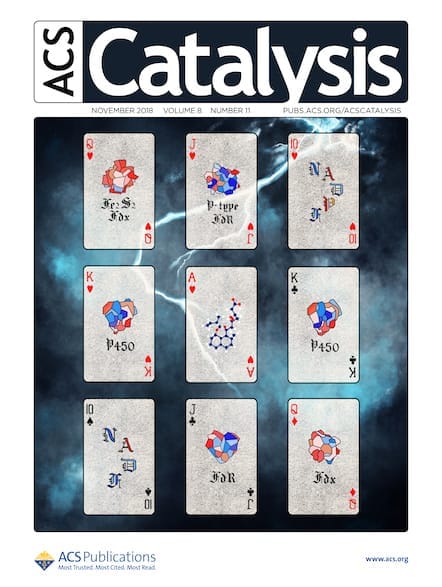Get to know the 2025 winners, read their winning articles, and learn about their plans for building upon their existing research.
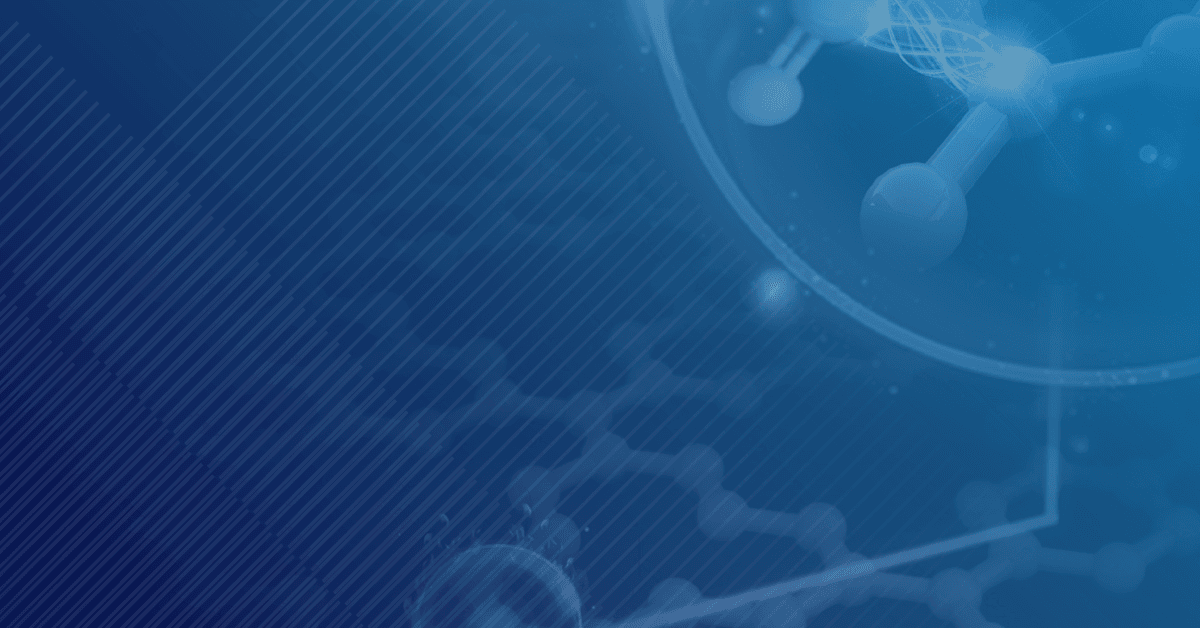
Each year, ACS Catalysis has the pleasure of honoring recent and significant contributions to the field of catalysis by an individual or a team with the ACS Catalysis Lectureship for the Advancement of Catalytic Science award. In partnership with the ACS Division of Catalysis Science and Technology (CATL) and the ACS Division of Organic Chemistry (ORGN), this year’s awards tie directly to a ground-breaking publication in ACS Catalysis.
In recognition of the large scope of catalysis covered by ACS Catalysis, the 2025 awards have been given in each of the three areas of catalysis covered by the journal: biocatalysis or enzymology, heterogeneous catalysis, and homogeneous catalysis. The awards honor recent and significant contributions to the field, which appeared as a publication in ACS Catalysis within the last 36 months preceding the nomination deadline (2022, 2023 or 2024).
It is our pleasure to announce the 2025 awardees:
- Biocatalysis: Prof. Debasis Das, Institute of Science, Bangalore, India
- Heterogeneous Catalysis: Prof. Lifang Jiao, Nankai University, China
- Homogeneous Catalysis: Prof. Rui Shang, University of Tokyo, Japan
Learn more about each of the winners below.
Prof. Debasis Das
Winning Article: Unraveling the Conversion of Fatty Acids into Terminal Alkenes by an Integral Membrane Enzyme, UndB
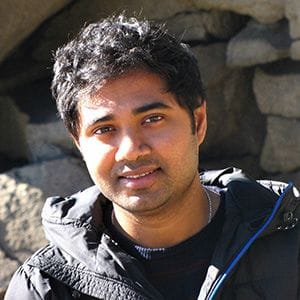
Prof. Das was born and raised in eastern India. He earned his B.Sc. from Ramakrishna Mission Residential College in NarenProfapur and his M.S. from the Indian Institute of Science in Bangalore, where he worked with Prof. G. Mugesh. In 2014, Prof. Das completed his Ph.D. in Chemistry (Chemical Biology) at the University of Michigan, Ann Arbor, working with Prof. Neil Marsh. After his postdoctoral research with Prof. Barbara Imperiali at MIT, USA, he joined the Indian Institute of Science, Bangalore, as an Assistant Professor in 2019.
His research is highly interdisciplinary, bridging the fields of chemistry and biology. His group focuses on gaining a mechanistic understanding of metalloenzymes and exploring their applications. By leveraging a combination of chemistry, biochemistry, molecular biology, and microbiology techniques, his team investigates the function, kinetics, mechanisms, and reaction intermediates of several poorly understood enzymes. The long-term goal of their work is to engineer and apply these enzymes in green energy solutions and therapeutic interventions. He has been recognized as an EMBO Global Investigator in 2023. He has received the Excellence in Research Award from the University of Michigan (2013), the Excellence in Research Award (2024), and the Excellence in Teaching Award (2024) from IISc Bangalore, as well as the Gramie-Hanson Early Career Researcher Award (2024) from the Society for Biological Inorganic Chemistry.
Prof. Das will be honored for his winning research at an upcoming award Symposium to be announced at a later date.
Prof. Lifang Jiao
Winning Article: Interfacial Engineering of Ni3N/Mo2N Heterojunctions for Urea-Assisted Hydrogen Evolution Reaction
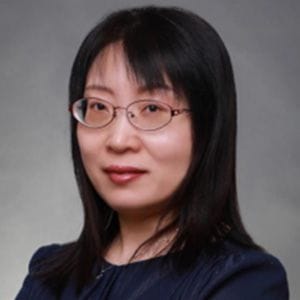
Prof. Jiao was born in Hebei Province, China. She began her academic journey in 1995 at Hebei Normal University, where she obtained both her bachelor’s and master’s degrees in chemistry. Continuing her pursuit of scientific excellence, she completed her Ph.D. in inorganic chemistry at Nankai University in 2005 and subsequently became a faculty member there. Between 2013 and 2014, she further enriched her expertise as a visiting fellow at the University of Wollongong in Australia. She is currently a full professor in the college of Chemistry at Nankai University, China, and has received significant recognition for her contributions to energy science. Notably, she was awarded the National Science Fund for Distinguished Young Scholars in 2020 and the 18th China Young Women Scientist Award in 2022.
As the Chief Scientist of the National Key Research and Development Program of China, Prof. Jiao leads cutting-edge research in advanced energy materials and electrocatalysis. Her current research interests are focused on energy storage and conversion of advanced materials, including sodium secondary batteries, dendrite-free sodium metal anode, sodium-based solid-state electrolyte, and electrocatalytic hydrogen evolution such as proton exchange membrane water electrolysis and hydrogen production coupled with electrochemical oxidation of small molecules.
Prof. Jiao will be honored during the ACS-Nankai University Catalysis Forum: Multidisciplinary Frontiers in Catalysis Science, co-organized by Nankai University and ACS Publications on August 20-21, 2025, at Nankai University, Tianjin, China.
Prof. Rui Shang
Winning Article: Arenethiolate as a Dual Function Catalyst for Photocatalytic Defluoroalkylation and Hydrodefluorination of Trifluoromethyls
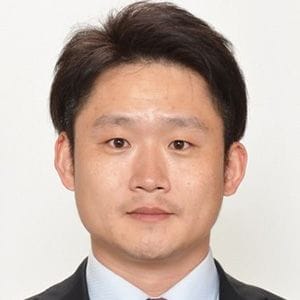
Prof. Shang received his bachelor's degree from the University of Science and Technology of China (USTC) in 2009 and obtained his Ph.D. from the same university in 2014 working on developing catalytic decarboxylative cross-couplings. From 2012 to 2014, he conducted joint doctoral research at the University of Tokyo in Japan under the supervision of Prof. Eiichi Nakamura, working on iron-catalyzed C-H activation. Upon completing his Ph.D., he was awarded a postdoctoral fellowship by the Japan Society for the Promotion of Science (JSPS) and continued his research at the University of Tokyo. In November 2016, he was appointed as a Lecturer at the Faculty of Science, the University of Tokyo—an appointment that bypassed the conventional Assistant Professor stage in the Japanese academic system—and was subsequently promoted to Associate Professor in 2020. In 2024, he was further promoted to Project Professor at the same institution.
Prof. Shang will join Westlake University as a full-time faculty member in October 2025, where he will establish the Laboratory of Sustainable Catalysis and Functional Molecules. Prof. Shang’s research focuses on novel catalytic reactions, green organic synthesis, and functional conjugated molecules. He has made a series of seminal contributions to the fields of base metal catalysis, visible-light photocatalysis, and organic functional materials. In 2022, he was selected as a member of the Early Career Advisory Board of Science of Synthesis (SoS), and as a JSP Fellow of the Bürgenstock Conference. He is also the recipient of the Banyu Chemist Award 2022 from Banyu Merck-Japan, the Chemical Society of Japan Award for Young Chemists 2022, and the Thieme Chemistry Journals Award 2023.
Prof. Shang will be honored during an ACS Division of Organic Chemistry symposium at ACS Fall 2025 in Washington, D.C, between August 17-21.
